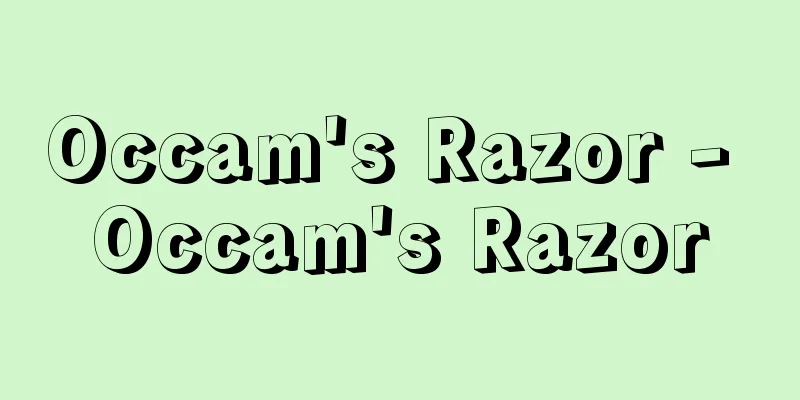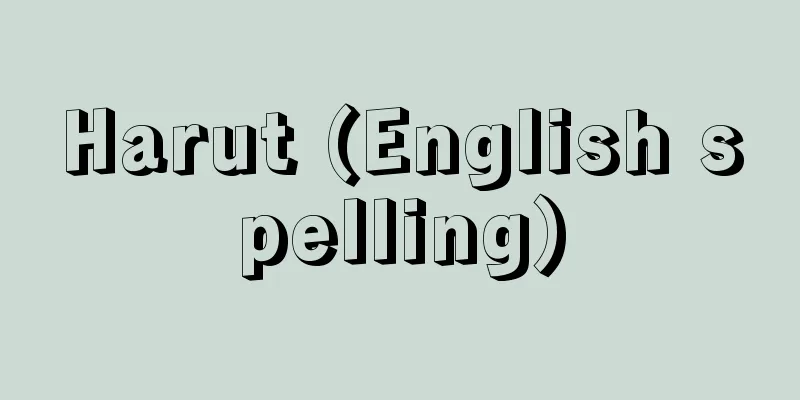Occam's Razor - Occam's Razor

|
The principle that "one should not prescribe many things unnecessarily." It is so named because the 14th century philosopher and theologian John of Ockham used it frequently in his arguments, discarding elements that did not have sufficient evidence. It is used to mean "one should not use more assumptions than necessary to explain something," or "when there are multiple theories or laws that explain a phenomenon, the simpler is better." The law of economy of thought. The principle of parsimony of thought. The principle of scientific simplicity. The law of thrift. The principle of stinginess. Source: About Shogakukan Digital Daijisen Information | Legend |
|
「必要なしに多くのものを定立してはならない」という原則。14世紀の哲学者・神学者オッカムが議論で多用し、十分な根拠のない要素を切り捨てたことから、この名で呼ばれる。「ある事柄を説明するために必要以上に多くの仮定を用いるべきではない」「ある現象を説明する理論・法則が複数ある場合、より単純な方がよい」などの意味で用いられる。思考経済の法則。思考節約の原理。科学的単純性の原則。倹約の法則。ケチの原理。
出典 小学館デジタル大辞泉について 情報 | 凡例 |
>>: Okake Daisen Tsugi - Okake Daisen Tsugi
Recommend
Arctoperlaria
…The larvae are food for stream fish and play an ...
Makonde
…Linguistically, they belong to the Central Bantu...
Electrophotography
Electrophotography is an image formation method t...
Makino [town] - Makino
An old town in Takashima District, northwest Shiga...
Fukuchiyama Line - Fukuchiyama
The name of the track of West Japan Railway Compa...
Cheongju
The capital of North Chungcheong Province, South K...
Withered tail flower - Kareobana
A collection of haiku poems. A collection of poems...
Hiromichi Ido
Year of death: 26th July 1855 (7th September 1855)...
Bharūch
A port city in the southeastern part of Gujarat st...
Kisetsusha (English: Société des Saisons French)
A French secret society. In the 1830s, under the J...
Systems Building
This is a construction method that efficiently org...
Angular stone tools
It is a type of weapon-shaped stone product from t...
Usazukai
At Usa Shrine, on the occasion of the enthronement...
Ichimi Shinsui - Ichimi Shinsui
A custom from the Middle Ages and early modern ti...
Hayato Osumi
〘Noun〙 In ancient times, the Hayato people lived i...









